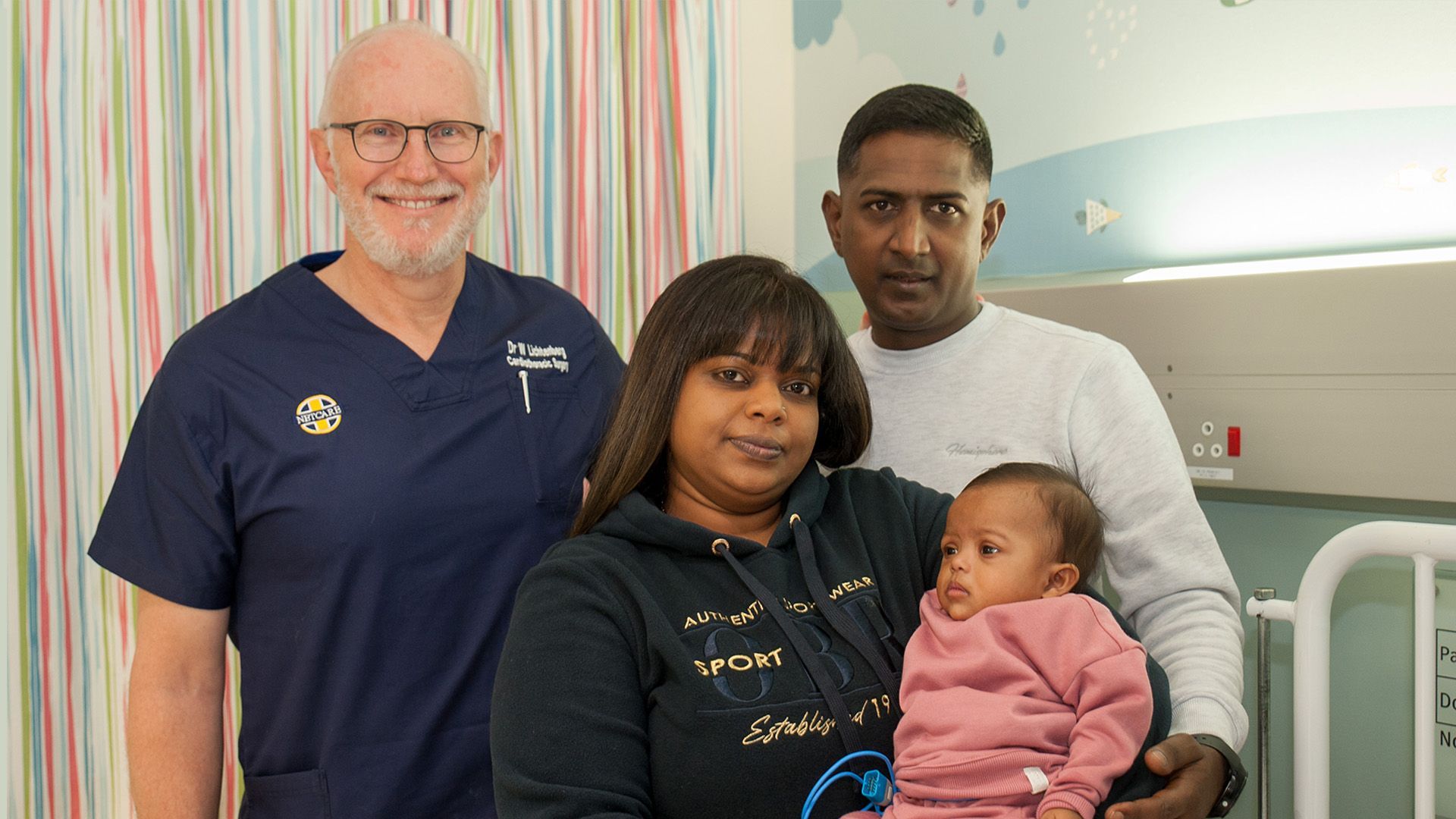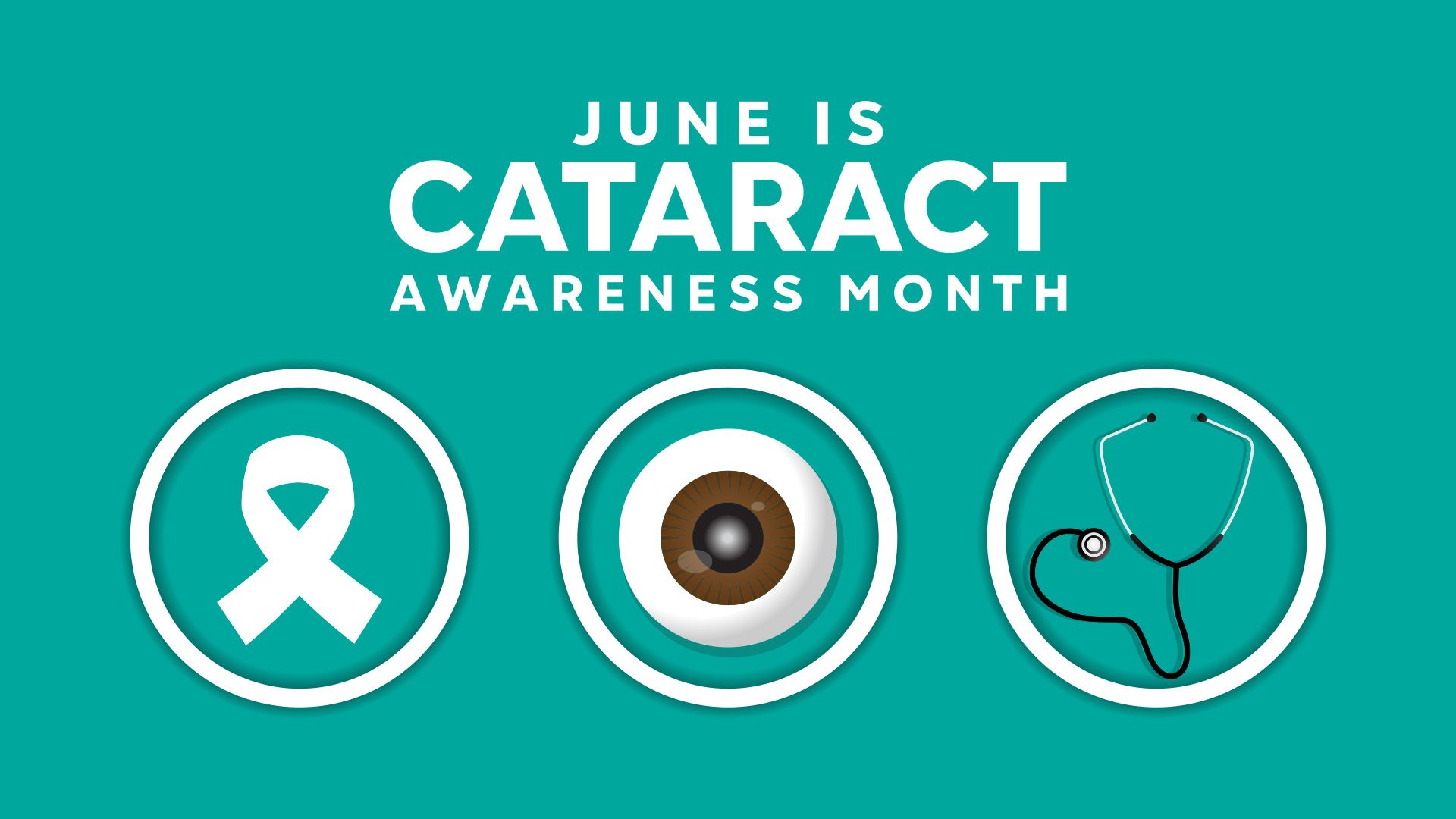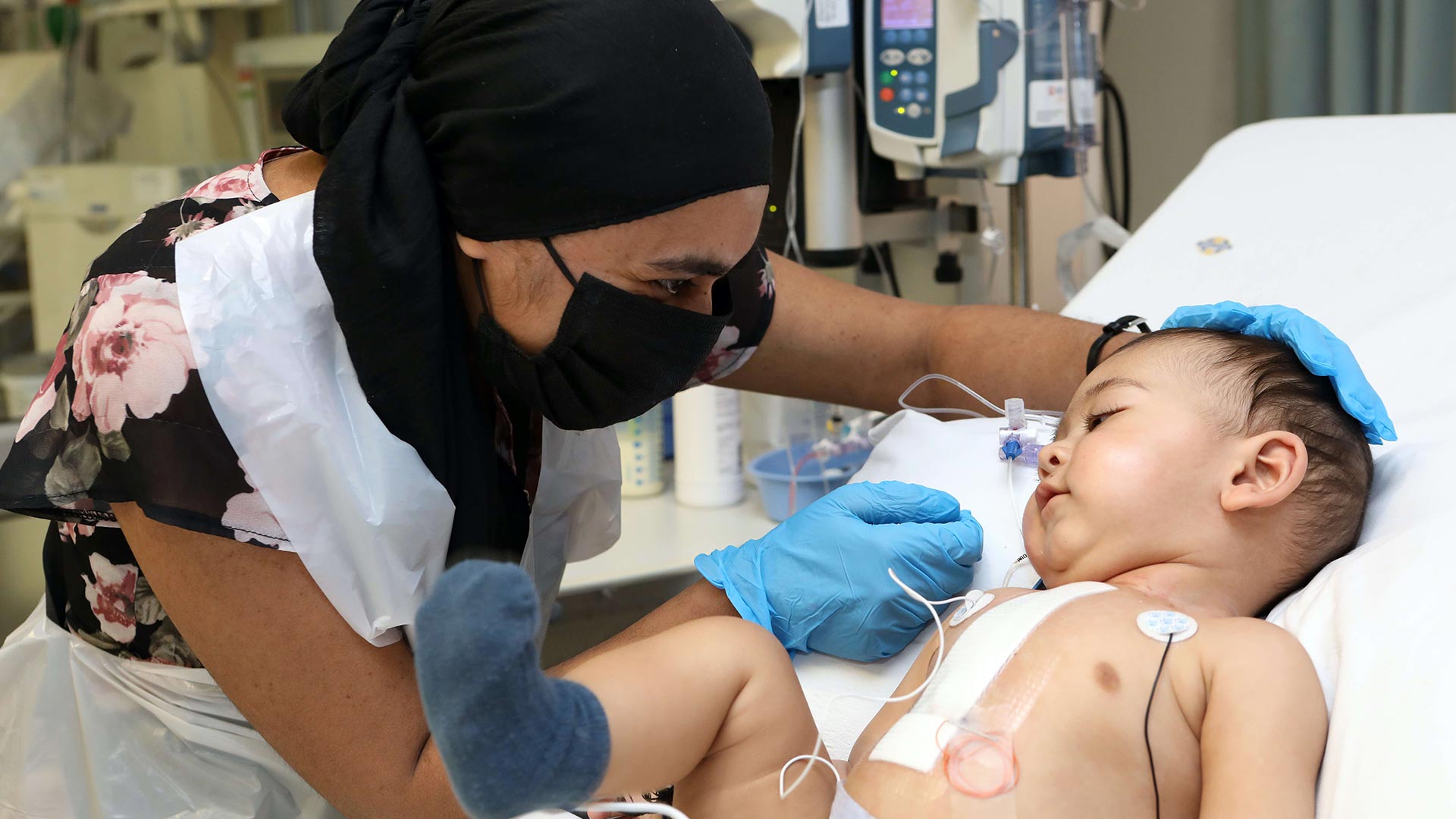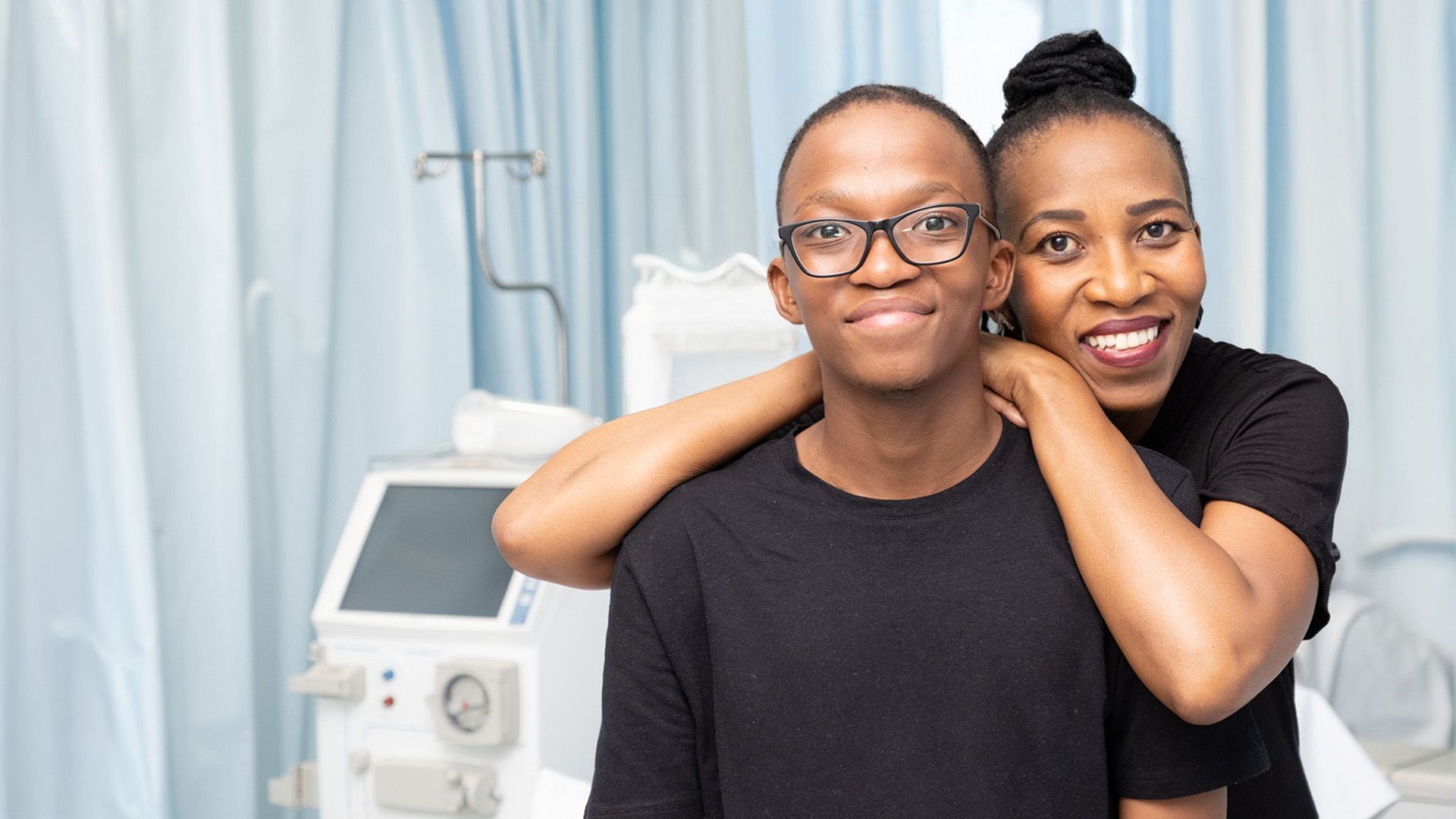Eight-month-old set to thrive after lifesaving donations
Baby Muhammad Noor Ismail recently received a lifesaving heart operation sponsored by Medipost Holdings and the Netcare Foundation at the state-of-the-art Maboneng Heart and Lung Institute at Netcare Sunninghill Hospital. The team of specialists who performed the surgery also gave their services pro bono. The eight-month-old baby boy, is recovering well after the procedure to correct a hole in the heart known as a ventricular septal defect. He is pictured with his mother, Sana Maher, in the cardiothoracic intensive care unit at Netcare Sunninghill Hospital only a few days after his surgery.
Pulling together for Baby Muhammad’s heart operation
A baby boy is back home with his mother and recovering well after undergoing a life-saving operation to fix a large hole in his little heart. With no time to lose, healthcare companies and top medical specialists teamed up to ensure eight-month-old baby Muhammad Noor Ismail could receive the urgent surgery he needed at the world-class cardiothoracic centre at Netcare Sunninghill Hospital.
“When he was two weeks old, I noticed he was a bit congested and wasn’t feeding well, and at first we tried some of the recommended home remedies. When he didn’t improve, we took him to the doctor, and when he still wasn’t thriving, we were very worried that there could be something wrong with our baby’s heart,” says Sana Maher, Muhammad Noor’s mother.
Baby Muhammad Noor is the latest beneficiary of the Heart-to-Heart campaign, a corporate social investment (CSI) match funding challenge by the Netcare Foundation and Medipost Holdings, for operations to disadvantaged children with life-threatening heart conditions by specialists at the Maboneng Heart and Lung Institute.
The doctor suggested he might have a heart defect, and Muhammad Noor was first referred to Kalafong Hospital and from there to Steve Biko Academic Hospital.
A large hole in the baby’s heart
“Earlier this year Muhammad Noor was diagnosed with ventricular septal defect [VSD], or a hole in the wall between the two lower chambers of his heart. It was not clear at first how badly his tiny heart was affected, but it soon became evident that the hole was so large that it would likely become debilitating, potentially even life-threatening, if not corrected soon,” says cardiothoracic surgeon and co-founder of the Maboneng Heart Institute, Dr Erich Schürmann.
“As the child grows, this type of heart defect damages the arteries of the lungs, and a specialised procedure is required to correct it, ideally as soon as possible. Sadly, there is a considerable waiting list for such resource-intensive procedures, and when we heard about Muhammad Noor’s condition, we were determined to find a way to assist,” he says.
“We prayed for a solution to help get the operation for our baby sooner but we aren’t on medical aid and at times it felt like there was little hope. Interventional paediatric cardiologist Prof Lindy Mitchell at Steve Biko assisted with the application, and soon we got the good news that he was accepted for surgery at Netcare Sunninghill Hospital. We couldn’t believe it, Muhammad Noor would have his operation much sooner than expected as a beneficiary of the Heart-to-Heart campaign, ” Sana says.
A slight delay
This match donation initiative between Netcare’s CSI arm and Medipost Holdings provided the necessary funding for Muhammad Noor to have his operation. There was, however, an unforeseen delay when the family tested positive for Covid-19 the day before he was first scheduled to be admitted for surgery.
“We had no symptoms at any stage fortunately, but it meant Muhammad Noor’s operation had to be postponed as a precaution. We had to be patient for just a few weeks longer, and thankfully towards the end of August his procedure could go ahead,” his mother remembers.
Life-saving procedure
Cardiothoracic surgeons Dr Schürmann and Dr Hendrick Mamorare of the Maboneng Heart and Lung Institute, paediatric cardiologist Dr Kenny Govandrageloo, anaesthetist Dr Krishnee Naidoo and cardiac perfusionist Mr Mogotsi Mophosho, who all practise at Netcare Sunninghill Hospital, committed their time and expertise pro bono to provide baby Muhammad Noor with the specialised procedure and care. The cost for theatre and his hospital care was covered by Medipost and the Netcare Foundation.
“Thank goodness, the operation went well. He is recovering quickly and was back home after a few days. Muhammad Noor and I had never been apart before, and now that he is home and the hole in his heart has been repaired it is such a relief, I cannot express my gratitude,” says Sana, who lives with her son in Erasmia, Pretoria.
“God sent angels to look after our baby boy. The doctors and nurses both at Steve Biko and Netcare Sunninghill Hospital were wonderful, and it was very reassuring to know he was in such good hands at the hospital. A huge thank you to everyone involved in making this possible for my son and for your kindness. Everyone will always be in our prayers.”
A chance at life
“Coming together to help a child have the chance of a full and normal life is an enormous privilege, and we thank the Netcare Foundation for doubling the reach of this CSI initiative with us to benefit more children,” says Rentia Myburgh, group sales and marketing director of Medipost Holdings, comprising Medipost Pharmacy, MediLogistics, Kawari Wholesaler and Distributor and the Medi Training Academy.
“We are most grateful to the medical team who donated their time and expertise pro bono and the nursing staff who put so much care into their work with little patients,” says Mande Toubkin, general manager emergency, trauma, transplant and CSI at Netcare, and a trustee of the Netcare Foundation.
“It is deeply rewarding to invest in the future of a child, and there can be no greater return than seeing a family so relieved and the bright eyes of a healthy baby with a whole lifetime of opportunities ahead. Many more children with serious heart defects are in need of similar operations, and it is only through working together to find solutions that we can reach more children in time,” she concludes.
For more information about the Maboneng Foundation, which coordinates sponsorship of the procedures, or to make a donation please visit
http://www.mabonengfoundation.co.za













